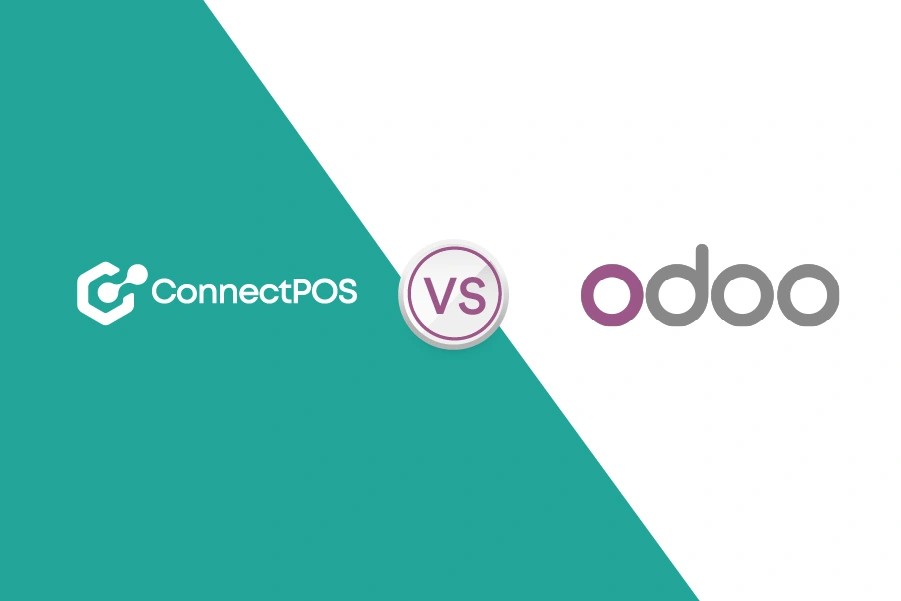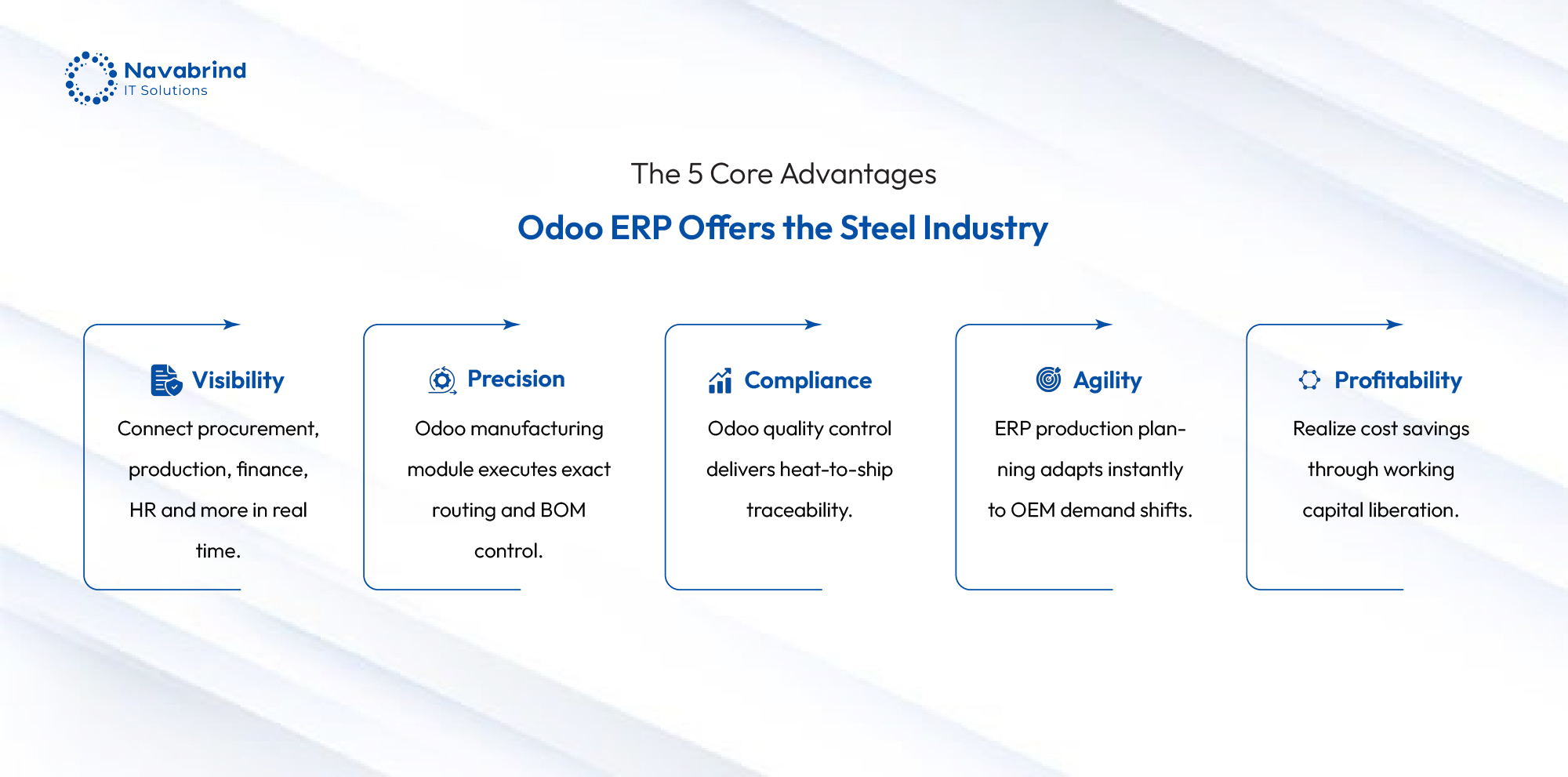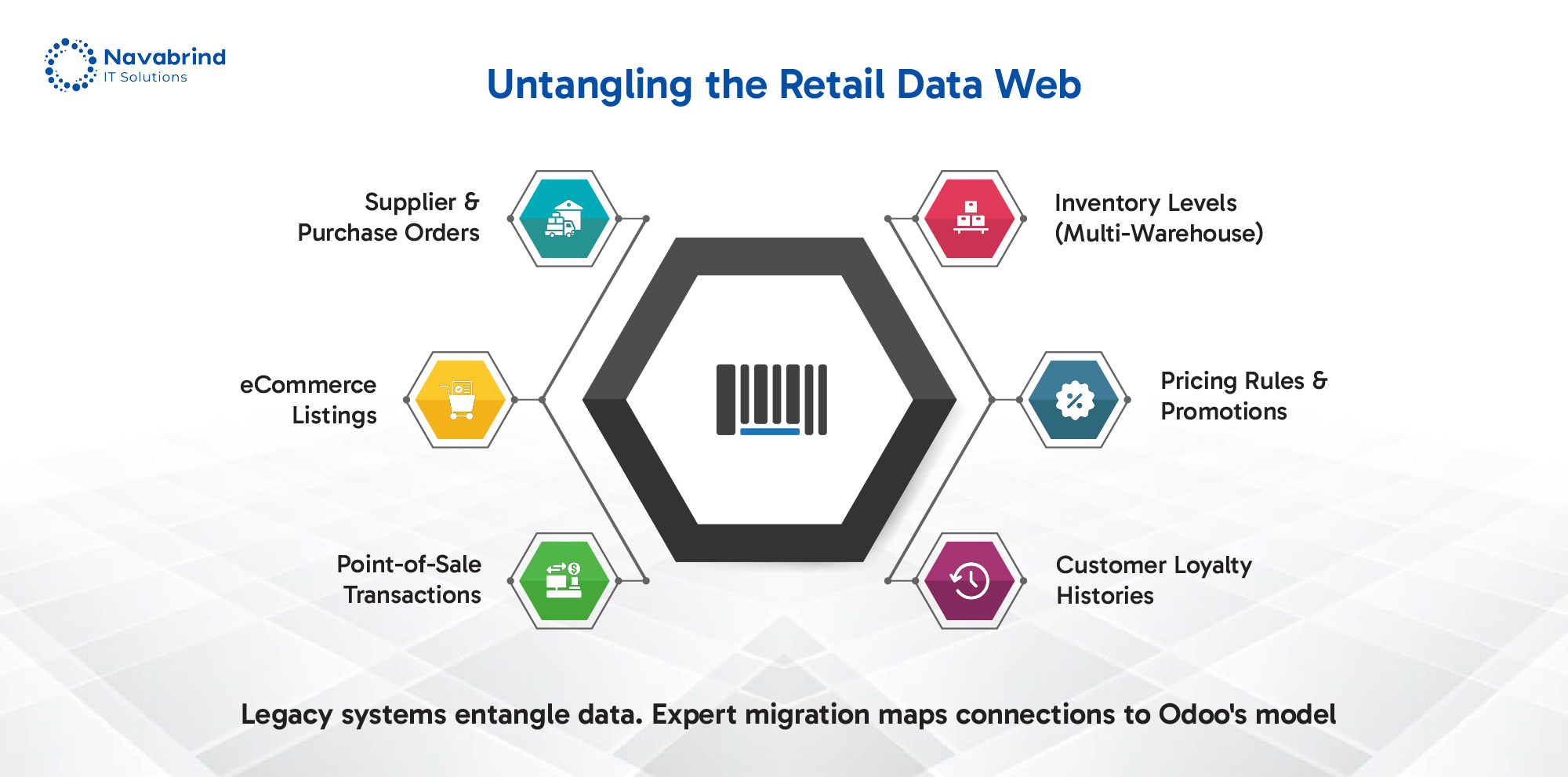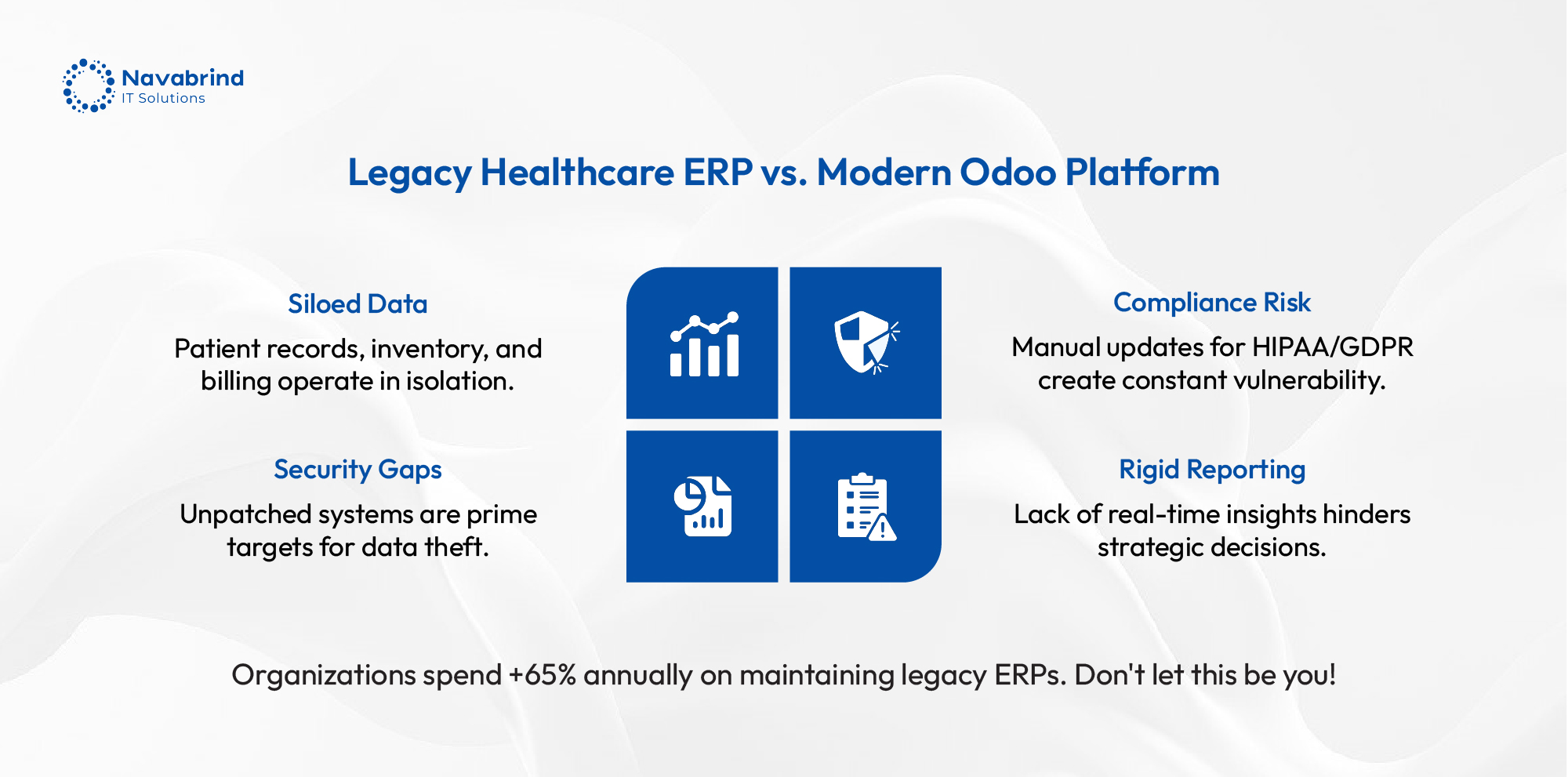Why Dutch Retailers Choose Odoo Over ConnectPOS: Real Results
- July 1, 2025
- Posted by:
- Categories: Blog, COnnectPOS
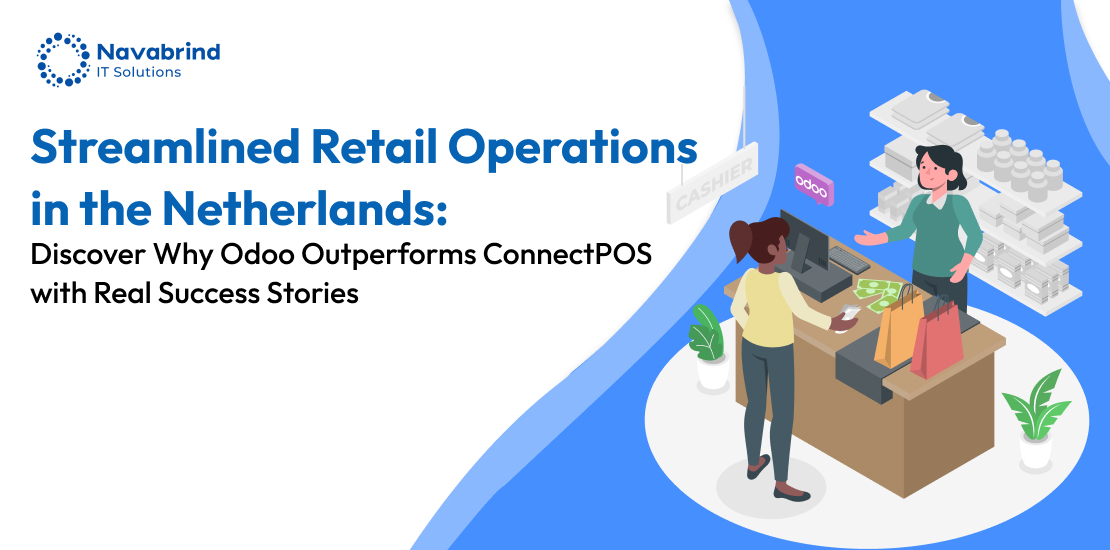
The global cloud POS market shows explosive growth and experts project it to reach USD 36,250.2 million by 2032 with a 24.7% CAGR. This remarkable expansion explains why Dutch retailers increasingly choose Odoo retail software Netherlands to manage their point-of-sale operations.
Dutch businesses face vital decisions that affect their bottom line as they evaluate POS systems Netherlands options. Cloud-based POS Netherlands solutions like Odoo and ConnectPOS bring unique advantages to the table. More retailers now prefer Odoo, and there’s good reason too. The loyalty management market’s expected growth to USD 25.4 billion by 2029 makes it essential to choose a system with reliable customer retention capabilities.
This piece dives into specific reasons behind Dutch retailers’ preference for Odoo over ConnectPOS. We’ll look at everything from ERP and POS integration capabilities to multi-store management features. The real-life results show why Odoo has become a trusted and affordable POS system that Netherlands businesses depend on.
Market Needs of Dutch Retailers
Dutch retailers are changing faster in a market that generated over €34.35 billion in e-commerce sales. 13.9 million online shoppers made 347 million purchases in 2022 alone. This growth has changed how businesses run their operations, especially with point-of-sale technologies. The Dutch e-commerce sector now adds more than three percent to the national GDP. Learning about the market’s needs has become vital for retail success.
Retail trends in the Netherlands
The retail world in the Netherlands has seen major changes. 2024 saw retail turnover grow by 2.1% compared to last year. This growth rate is the lowest in ten years, but some sectors are doing well. Non-food shops grew by 3.9% while online retailers saw their turnover jump by 9.0%.
Dutch consumers just need their shopping to work smoothly across all channels. Brands like Decathlon have embraced this idea. They are now 100% integrated with 20% of sales coming from digital channels. This approach that combines all sales channels has become normal in the Dutch market.
The Netherlands stands at seventh place in European e-commerce market size according to Statista. This makes it a leader in the digital economy. The market has changed over the last several years. Quick delivery options and smooth payment experiences are now standard. Cloud-based POS Netherlands solutions help retailers stay ahead of their competition.
Why POS systems matter more than ever
Dutch shoppers expect quick and smooth service everywhere they shop. One source puts it clearly: “A modern POS system is no longer a luxury but a necessity to remain competitive”.
POS systems do much more than process transactions. They are now the heart of business operations. Modern systems blend hardware with smart software to manage inventory, track sales, and handle customer relationships. Multi-store POS Netherlands solutions give retailers with several locations significant advantages in running their operations.
These systems serve as key points for marketers because people often decide to buy high-margin products at these strategic spots. A well-designed system shows live inventory data. Store managers can track stock levels and make smart decisions about restocking and promotions.
Customer loyalty programs play a big role in the Dutch market. POS software for restaurants Netherlands and other retail sectors helps businesses target customers with customized offers based on their buying history and priorities. This ability to customize has become what sets successful retailers apart.
Common challenges with legacy POS systems
Many Dutch retailers still use old POS technology that holds back their growth. A survey of 37 small, independent retailers in the Netherlands showed that small businesses don’t widely use POS systems. This hesitation comes from several ongoing challenges:
- High costs and limited scalability: Old systems need big investments in special hardware, software licenses, servers, backups, and IT support. These costs add up fast and eat into profits without offering the flexibility needed to grow.
- Poor data accessibility: Traditional systems keep data on local servers that you can’t access remotely. Retailers can’t watch their performance live or sync data across locations—a big problem for businesses with multiple stores.
- Security vulnerabilities: Old POS systems often fall victim to data breaches and theft. They store information on local servers without proper encryption or firewall protection. They also fail to meet current security standards and regulations.
- Limited integration capabilities: Older systems weren’t built to work with modern tools. This creates problems for retailers trying to blend physical stores with e-commerce and mobile apps.
- Restricted mobility: Traditional POS systems stay in one place once installed. They don’t allow for store layout changes or pop-up events. This goes against the trend toward mobile shopping experiences that customers want.
Dutch retailers looking for ERP and POS integration Netherlands solutions now turn to modern alternatives. These new systems solve these problems and offer the flexibility needed to succeed in today’s dynamic retail world.
Feature Comparison: Odoo vs ConnectPOS
Dutch retailers must make important decisions about POS system features that shape their daily operations. Odoo and ConnectPOS both bring strong capabilities to the table. Their approaches to handling core functions differ in ways that matter to businesses in the Netherlands.
Real-time synchronization and data accuracy
Modern retailers need their physical and online stores to sync data instantly. ConnectPOS delivers reliable synchronization between online and offline stores. The system keeps inventory, sales, and customer data updated on all platforms. Stock levels update automatically across different sales channels. Transactions reflect immediately in connected systems.
Odoo’s real-time synchronization works through its connected suite of applications. This complete approach creates smooth data flow between sales, inventory, and accounting modules. Businesses that use Odoo’s real-time inventory sync system report better efficiency, lower costs, and happier customers.
The restaurant sector provides a good example. Odoo POS Restaurant Real Time Sync keeps operations running smoothly by syncing data across all POS terminals. Restaurant teams work faster with fewer errors, especially in busy environments with multiple terminals. Updates about guest seating or new orders reach everyone right away.
Multi-store POS management in the Netherlands
Dutch retailers with multiple locations need strong multi-store management tools. ConnectPOS makes this easy with centralized control of inventory and sales data across locations. Businesses can move and track inventory between stores to prevent stockouts or excess inventory.
Odoo’s multi-store management comes as part of its complete ERP system. Dutch retailers can manage several sales channels from one screen. They keep centralized inventory control with location-specific stock management. Odoo’s POS module works with accounting, inventory, and CRM modules. Teams see customer behavior, stock status, and financials in real time without switching systems.
Odoo’s POS multi-shop module adds more features. Retailers can create different shops within POS and link them to each session. This helps manage multiple stores and complex shop setups. Products can belong to several shops. Staff members find inventory management easier because they can filter products based on shop settings.
Customizability and user control
ConnectPOS lets Dutch businesses adapt the system to their needs. The system has customizable receipts and invoices. Users can set up flexible payments, custom promotions, discounts, user roles, permissions, and product categories.
In stark comparison to this, Odoo offers broader customization options. This appeals to Dutch retailers with specific business requirements. Odoo’s open-source nature lets businesses shape the system to their needs in today’s market. Users can download and modify the source code to match their requirements.
Odoo Studio helps users create their own applications. Business owners can change screens without complications. The system adapts to unique business processes quickly. Companies depend less on external developers for small changes. They can make updates fast as their needs change.
Odoo’s large ecosystem adds more value with over 10,000 third-party apps in the Odoo Apps store. These apps boost Odoo POS capabilities. Dutch retailers can build solutions that match their needs perfectly without writing code from scratch.
Integration Capabilities and ERP Strength
POS and ERP systems integration has become vital for Dutch retailers who want to work efficiently and access data in real-time. The way Odoo and ConnectPOS handle this integration affects how businesses run their operations by a lot. This difference shapes both their day-to-day functions and future growth.
ERP and POS integration Netherlands: A key advantage
Dutch retailers and multi-location businesses need their point-of-sale systems and ERP platforms to share data smoothly. This setup will give a reliable way to sync master data, inventory levels, pricing, and transactions in real-time. Companies can then streamline their operations and cut down complexity.
Odoo’s unified system architecture makes it stand out. Unlike ConnectPOS, Odoo’s POS module works as part of the whole system. It connects naturally with other Odoo apps to create one complete business system. Users don’t need to deal with complex integrations between separate systems or manage to keep them running.
Dutch businesses using Odoo get automatic stock updates when sales happen. The system creates invoices instantly, records payments without hassle, and links directly to loyalty programs. ConnectPOS needs extra setup to do these same tasks through its API connections with other systems.
These differences matter in practice. One retailer put it simply: with Odoo “there is no time lost on database migration”. This matters a lot to growing businesses that can’t stop their operations.
Third-party app compatibility
Odoo works well with external systems and services, which Dutch retailers find very useful. Both Community Edition and Enterprise Edition users can run third-party apps. The main difference lies in how much official support they get.
The Odoo Apps store has more than 10,000 third-party applications that add to Odoo’s features. Retailers can customize their POS system to fit their exact needs without writing new code from scratch.
Odoo comes with built-in connectors for big eCommerce platforms like Shopify, Magento, and WooCommerce. It also works with payment systems such as PayPal, Stripe, and Authorize.net.
ConnectPOS also works with systems of all types, including major eCommerce platforms and payment gateways. All the same, it has its limits. Online version users can’t install every third-party app, and Python code modules aren’t allowed at all.
Accounting and CRM module synergy
Odoo’s POS system works hand in hand with its accounting and CRM modules to give complete business insights. Dutch retailers can gather accurate data across their entire system without connecting lots of outside apps.
The accounting integration shines when Odoo automatically creates invoices, logs payments, and tracks revenue from POS transactions. This stops double-entry and cuts down mistakes that often happen when systems work separately.
CRM integration helps Dutch retailers build customer loyalty. The system connects purchase data straight to loyalty programs and targeted marketing. Restaurants and retail businesses in the Netherlands gain an edge by customizing customer experiences based on what people bought before.
One retailer in the Netherlands, Belgium, and Luxembourg used Odoo’s “Single Logistics – Multi Finance” setup. This system let them control logistics from one place while running financial transactions separately. Their team managed multiple companies and stores efficiently without switching between different interfaces – showing how Odoo adapts to complex business needs.
Dutch retailers looking at Odoo versus ConnectPOS should note that Odoo’s deep integration ended up being a big plus. It offers one unified commerce solution instead of just connecting separate systems.
Offline Functionality and Reliability
Stable internet connection is a vital concern for retail businesses in the Netherlands. Dutch retailers need systems that work even when the internet goes down, whatever their location or size. This directly affects customer satisfaction and protects revenue in today’s digital
How Odoo handles limited connectivity
Odoo’s offline features give Dutch retailers a practical solution to connectivity issues. The system uses a sophisticated browser-based mechanism that keeps important data locally when a session starts. The POS session loads critical information into the browser’s memory – product catalogs, customer data, and tax configurations.
The system shows a red wifi icon if the internet drops but keeps working naturally. During offline periods, the system:
- Keeps all transactions in the browser memory
- Processes sales and computes taxes
- Prints receipts as needed
- Records inventory changes locally
The system syncs all offline transactions with the main database automatically when the connection returns. This keeps data consistent across retail operations without disrupting customer service.
You need internet connectivity to start a POS session – even a shared smartphone connection works. After that, the system works offline for long periods while keeping core features running.
Why offline POS matters in Dutch retail
Dutch retailers, especially those in remote areas or places with poor connections, need offline capability to stay in business. Research shows 32% of customers will leave a brand they love after just one bad experience. One failed payment due to internet problems could lose customers forever.
Uninterrupted service becomes vital in several common situations in the Netherlands:
- Seasonal markets and outdoor events with spotty connections
- Historic buildings where thick walls block wireless signals
- Pop-up stores and temporary retail setups
- Peak shopping times when networks slow down
Dutch restaurants and food services can’t stop working when connections fail. Their kitchen communications and payments must keep running during busy times. Restaurant POS software in the Netherlands needs to work whatever the connection status to avoid delays and billing issues.
ConnectPOS vs Odoo: Offline performance
These systems handle offline operations differently. ConnectPOS offers what they call “robust offline functionality” to keep business running during outages. Their system stores transaction data locally, syncs automatically when connected, and lets users access essential features like product catalogs and customer data.
Odoo’s offline features work in their own way. ConnectPOS claims better offline features, but documents show Odoo POS keeps working during outages, with some limits on features that need backend access.
The main difference lies in how they’re built. Odoo’s offline mode comes built into its core POS features as standard. ConnectPOS markets their offline capabilities as their competitive edge.
Both systems let you process sales during internet outages. They differ in how naturally they blend this feature with their broader ERP functions – something Dutch retailers should think over when looking for true business continuity.
Inventory and Loyalty Management
Dutch merchants gain crucial advantages through smart inventory tracking and customer retention in today’s competitive retail market. Odoo and ConnectPOS both provide these tools, but they differ substantially in how they work and what they can do.
Advanced inventory tools for Dutch POS users
Odoo’s inventory management excels with its complete POS system integration. Product availability updates automatically with each transaction. This sync eliminates gaps between physical stock and system records.
Businesses with multiple locations can track stock movement between warehouses, stores, and branches using Odoo. The system monitors all product movement and helps plan reorders to avoid stockouts. Odoo’s barcode scanning speeds up operations.
ConnectPOS takes a different approach with its Multi-Source Inventory warehouse management. This native app tracks stock across locations and connects with the POS system. The barcode scanner tracks product details like sizes and colors.
Customer loyalty programs: Odoo's edge
The loyalty management market shows promise. Experts predict growth from USD 11.4 billion in 2024 to USD 25.4 billion by 2029 at a 17.3% CAGR. Odoo stands out in this growing market.
Odoo’s loyalty program lets businesses:
-
Design custom reward structures with points, gifts, or discounts
-
Run the loyalty process automatically from points earned to redemption
-
Spot customers quickly through loyalty cards and barcode IDs
The loyalty programs start working once activated in Odoo’s settings. Businesses can set specific rules about qualifying products, purchase amounts, and reward values. Customers see their points during purchases and can use them once they have enough.
ConnectPOS includes loyalty features like point earning and spending, custom rules, and customer profile integration. Odoo’s direct CRM module connection makes loyalty program management smoother.
POS software for restaurants Netherlands: A use case
Restaurants benefit from Odoo’s combined inventory and loyalty system. Restaurant managers track food and drink stock while creating custom rewards for regular customers.
Up-to-the-minute updates matter most in restaurants where stock changes happen fast. Food item availability updates on all terminals as orders come in. Servers no longer risk offering menu items that have run out.
Odoo’s unified inventory and loyalty management gives Dutch retailers and restaurant owners clear advantages. They can optimize operations and keep customers coming back without managing multiple systems.
Case study: Small business success with Odoo
Maison Dandoy’s story gives Dutch retailers a great way to get valuable lessons. This family-run business specializes in handmade speculoos biscuits. They managed their warehouse using pen and paper among unconnected Excel sheets and accounting software, which created challenges as they expanded. The company chose Odoo because it offered POS capabilities, customization options, and support for multiple languages.
The company’s results tell an impressive story. Alexandre Helson, Co-CEO, explains: “Working with Odoo allowed us to digitize all our internal processes. We were able to be more efficient and we could finally reach full traceability on our products lifecycle”. The team saved countless hours when daily sales transactions from each shop started integrating directly with their accounting system.
Cost savings and ROI with Odoo
Odoo’s financial benefits are clear and measurable. Businesses using Odoo ERP achieved a soaring win with a 312% return on investment over three years, according to a Forrester Consulting study. Dutch retailers have seen these improvements:
-
30% reduction in transaction processing time
-
25% decrease in stockouts and overstock situations
-
20% increase in sales within the first quarter
Dutch businesses can implement this economical POS system without getting pricey, thanks to its open-source nature that eliminates licensing fees. The platform lets retailers pick only the components they need, which helps avoid extra costs.
Scalability for growing Dutch brands
Odoo’s architecture grows with Dutch brands as they expand. Companies of all sizes have found success with the platform, from startups to multinational corporations. Netherlands-based companies like Centor Europe, Osmunda, and Ruby Trading credit Odoo Business Solutions for helping them prepare for “further business growth”.
Growing Dutch retailers won’t need expensive system replacements during expansion. Odoo evolves with the business and keeps performing consistently even as transaction volumes grow.
Conclusion
The Clear Choice for Dutch Retailers
Odoo stands out as the preferred solution for Dutch retailers who need a complete POS system that delivers tangible business results. Our comparison shows how Odoo consistently outperforms ConnectPOS in critical areas that matter most to businesses operating in the Netherlands.
Odoo’s smooth integration capabilities create a unified ecosystem. POS, inventory, accounting, and CRM work together as a cohesive unit rather than separate components. This integration eliminates data silos and reduces manual entry errors while providing live insights across all business operations.
Dutch retailers gain a major benefit from Odoo’s offline functionality, especially those operating in locations with unreliable internet connectivity. Business continuity remains protected during outages. Core transaction capabilities safeguard both customer experience and revenue effectively.
Retailers can track products across multiple locations while building meaningful customer relationships with Odoo’s advanced inventory and loyalty management tools. These features become valuable assets for businesses in the competitive Dutch market where customer retention directly affects profitability.
Success stories from businesses like Maison Dandoy showcase Odoo’s practical benefits clearly. Companies achieve up to 312% return on investment over three years. These impressive results come from reduced transaction processing time, fewer inventory issues, and increased sales through better operational efficiency.
Dutch retailers’ choice depends on what they value most. ConnectPOS shows specific strengths in certain areas. Yet Odoo delivers a more complete solution that grows with your business. Long-term scalability, integration capabilities, and total cost of ownership should guide this important decision.
Without doubt, today’s evolving retail world needs technology partners that understand unique challenges. Odoo’s complete approach and proven track record among Dutch retailers makes it the clear choice. Businesses ready to reshape their operations and achieve sustainable growth in today’s competitive marketplace will find Odoo invaluable.
-
Post
How Odoo ERP Drives Efficiency in the Steel Industry
How Odoo ERP Drives Efficiency in the Steel Industry February 18, 2026 Posted by: Tony Categories: Blog, Odoo No Comments The High-Stakes Race of Auto Parts Manufacturing Your OEM demands a production schedule shift, but procurement can’t confirm steel availability. The sales team lacks real-time inventory data for a quote and your shop floor operates -
Post
Odoo Database Migration Guide: From Homegrown Retail ERP to Odoo ERP Without Downtime
Odoo Database Migration Guide: From Homegrown Retail ERP to Odoo ERP Without Downtime February 18, 2026 Posted by: Tony Category: Uncategorized No Comments The Need for Smooth Odoo Database Migration If your outdated software, disparate applications, and an unsupported ERP begin to hinder work, you are no longer dealing with a minor technical issue, but -
Post
From Legacy Healthcare ERP to Odoo ERP: Why You Need Expert Odoo Migration Help
From Legacy Healthcare ERP to Odoo ERP: Why You Need Expert Odoo Migration Help February 11, 2026 Posted by: Tony Category: Uncategorized No Comments Why Healthcare Organizations Need Odoo ERP Migration Legacy healthcare ERP systems create barriers to efficiency. They are expensive to maintain, and struggle to integrate tools. This disconnect impacts patient care coordination,
How can we help you?
Get in touch with a solutions consultant that can share best practices and help solve specific challenges.





